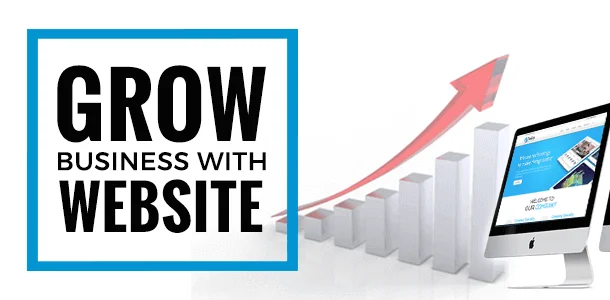
In today’s digital age, having a website is not just a luxury but a necessity for businesses of all sizes. Whether you’re running a small local shop or a large multinational corporation, a well-designed website can provide numerous benefits that can help you achieve your business goals. In this article, we’ll explore 15 key benefits of having a website for your business, providing a comprehensive understanding of how it can drive growth, enhance your brand, and improve customer satisfaction.

A website acts as your business’s online storefront, accessible 24/7 to anyone with an internet connection. Unlike a physical store with set hours, a website ensures that potential customers can find your business anytime, from anywhere in the world. This increased visibility can help attract new customers and keep your existing ones engaged.
Traditional marketing methods, such as print ads and billboards, can be expensive and have a limited reach. A website, on the other hand, is a cost-effective marketing tool that can reach a large audience at a fraction of the cost. Through SEO, content marketing, and social media integration, your website can become a powerful platform for promoting your products or services.
In the digital era, consumers expect businesses to have an online presence. A professional-looking website can significantly enhance your credibility and establish your business as a legitimate and trustworthy entity. It serves as a digital business card, showcasing your brand, products, and services in a polished and professional manner.
A website allows you to engage with your customers in ways that were not possible before. Through blogs, forums, and interactive features, you can create a community around your brand, encouraging customer interaction and feedback. This engagement can lead to stronger customer relationships and increased brand loyalty.
A website opens up new sales opportunities by allowing customers to purchase your products or services online. E-commerce platforms integrated into your website can provide a seamless shopping experience, leading to higher sales and revenue. Even if you’re not selling products online, a website can generate leads that can be converted into sales through other channels.
A website provides valuable insights into customer behavior, preferences, and demographics. By analyzing website traffic, you can gain a deeper understanding of what your customers are looking for, how they interact with your site, and what drives their purchasing decisions. This information can help you make informed business decisions and optimize your marketing strategies.
Providing excellent customer support is crucial for retaining customers and building brand loyalty. A website can serve as a central hub for customer support, offering features such as FAQs, live chat, and contact forms. These tools make it easier for customers to get the help they need, leading to a better overall experience.
A website gives you the perfect platform to showcase your products and services in detail. Through high-quality images, videos, and descriptions, you can highlight the features and benefits of your offerings, making it easier for customers to make informed purchasing decisions.
In a competitive market, having a website can give you an edge over competitors who may not have an online presence or have an outdated website. A modern, user-friendly website can set you apart from the competition and attract more customers to your business.
A website is a powerful tool for building and enhancing brand awareness. Through consistent branding, including logos, color schemes, and messaging, your website can reinforce your brand identity and make a lasting impression on visitors.
As your business grows, your website can grow with it. Unlike physical stores, which may require significant investments to expand, a website can be easily scaled to accommodate more products, services, and traffic. This scalability makes it a cost-effective solution for businesses looking to expand their reach.
Effective communication is key to building strong customer relationships. A website provides multiple channels for communicating with your customers, such as blogs, newsletters, and social media integration. These channels allow you to share updates, promotions, and news with your audience, keeping them informed and engaged.
A well-optimized website can significantly increase your conversion rates by guiding visitors through the sales funnel. Through strategic design, clear calls to action, and persuasive content, you can turn visitors into leads and leads into customers.
By leveraging digital marketing through your website, you can reduce or even eliminate the need for traditional advertising methods such as print ads and billboards. This can result in significant cost savings while still reaching a large audience.
A website is a long-term investment that can provide ongoing value to your business. Once your website is up and running, it can continue to generate leads, sales, and brand awareness with minimal maintenance and updates. This long-term value makes a website one of the most cost-effective investments you can make for your business.
In conclusion, a website is an essential tool for any business looking to thrive in the digital age. From increasing visibility and credibility to improving customer engagement and driving sales, the benefits of having a website are numerous and far-reaching. By investing in a well-designed, user-friendly website, you can unlock new opportunities for growth and success, positioning your business for long-term success in an increasingly competitive market.